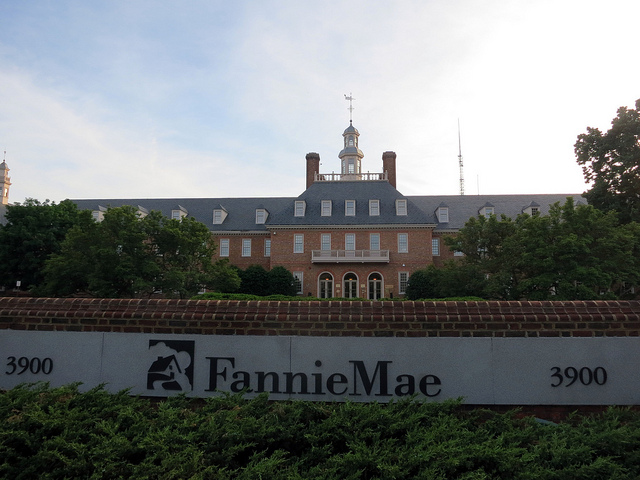
Last week, Fannie Mae and Freddie Mac issued requests to the U.S. Treasury asking for billions of dollars in cash infusions. The requests come after Q4 2017 reports show net losses totaling billions for the two housing institutions, forcing them to draw on their line of credit with the Treasury. The request is roughly $3.7 billion for Fannie Mae, and $312 million for Freddie Mac.
While Fannie and Freddie blame their requests on passage of the GOP’s tax reform, others criticize their contrived multi-billion dollar payments to trust funds while lacking sufficient capital to continue paying. In reality, the requests were spurred from their capital reserves declining toward $0 over the past year, paired with write-downs of their deferred tax assets, prompting the ask for a withdrawal from the Treasury’s coffers. The request has been long-expected from economists and market observers, but it nevertheless indicates the urgency for housing reform.
The two institutions are America’s largest mortgage companies, standing behind $5 trillion in mortgage debt. Spurred by the Great Depression and the following housing market collapse, consumers quickly defaulted on mortgages and lenders themselves lacked, hoarded, or simply stopped loaning capital. Congress quickly moved to alleviate the problem, and created Fannie Mae in 1938 as part of President Roosevelt’s New Deal. Formed as a government sponsored enterprise or GSE, it created a national fund for mortgage lending, with loans backed by an implicit government guarantee. In the late 60s and early 70s it was converted to a publicly traded company, and Freddie Mac was founded shortly after to compete with Fannie. However, both bought and continue to buy mortgages, sell securities, and retain the coveted government guarantee.
For years, the GSEs bought mortgages, packaged them together, and sold them off as securities to Wall Street. However, many were full of underperforming subprime mortgages, which borrowers later defaulted on as they couldn’t repay the loans. In 2008, with the collapse of the Lehman Brothers, federal regulators soon took both Fannie and Freddie under government conservatorship, bailing them out with taxpayer funds of roughly $187 billion.
With the financial crisis still fresh in 2011, Americans for Tax reform submitted testimony to the House Financial Services Committee recommending measures to encourage Congress to reform the housing market towards a more transparent, responsible, and taxpayer friendly environment.
Unfortunately, it’s been 10 years since the initial bailout, and still, the housing market has yet to see any real reform.
After learning that the GSEs were in need of cash last week, Financial Services Chairman Jeb Hensarling issued a press release lambasting the request:
“After footing the bill for the costliest bailout in history, taxpayers are sick and tired of getting ripped off by Fannie and Freddie and then scolded by GSE apologists when they complain. Americans deserve better. That’s why Congress can and should enact comprehensive housing finance reform this year to create a sustainable housing system.”
If the necessity for reform wasn’t clear enough, a stress test done by the Federal Housing Finance Agency this past summer found that if another economic downturn occurred, the two GSEs could require another bailout close to $100 billion dollars just to stay solvent.
With a Republican in the White House and GOP majorities in both chambers, the time for reform is now. Chairman Hensarling, Treasury Secretary Mnuchin, and Federal Housing Finance Agency Director Mel Watt have have all expressed support for housing finance reform, indicating that the efforts will hopefully have the momentum to materialize in the coming months.

